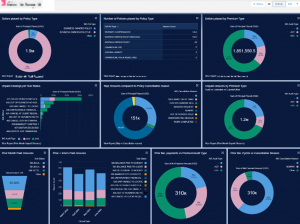The workers’ compensation Audit Noncompliance Charge (ANC) was implemented by the National Council on Compensation (NCCI) on January 1, 2017 (with the exceptions of Alaska and Texas), with the intent to provide carriers with a more uniform approach for employers who don’t allow records to be examined and audited.
This means that after at least two attempts to examine and audit an employer’s records, the ANC can be applied to the estimated annual premium.
For assigned risk policies, if an employer is noncompliant with an assigned risk audit and pays the ANC, that employer is ineligible for assigned risk coverage until the employer allows the audit to be performed.
The ANC is refunded for an employer that has paid the ANC and allowed the audit to be performed.
We’re here to answer your questions about the ANC and all the fine print.
Is applying the ANC mandatory?
No, it’s up to you to decide whether to use it or not. If you do, you must follow the conditions provided by the ANC rule.
How do you determine if an employer is noncompliant?
Employers are considered noncompliant if they do not keep records and provide those records to carriers.
Failing to do so is going against the provisions of the policy. Additionally, employers must allow carriers to examine and audit all records during the policy period and within three years after the policy expires.
How is the amount of the ANC determined?
The basis of the charge is estimated annual premium. The goal is to encourage the employer to provide access to the records needed to conduct the audit.
Is the ANC subject to state-specific assessments, surcharges, and taxes?
Yes, it is subject to state-specific premium-based assessments, surcharges, and taxes because it is a premium charge.
What if the insured still doesn’t cooperate?
If an employer continues to be noncompliant, the insurance company can cancel the workers’ compensation coverage.
Noncompliant employers will be disqualified from obtaining coverage from any insurance company until the outstanding audit is completed.
Additionally, an employer that pays the ANC without providing records may still be subject to cancellation or nonrenewal of workers’ compensation coverage.
What records are needed?
The auditor will provide instructions on what records are needed, how to submit them and when they need to be submitted by.
According to the NCCI, these records may include journals, ledgers, contracts, registers, payment vouchers, tax reports, payroll records and disbursement records.





